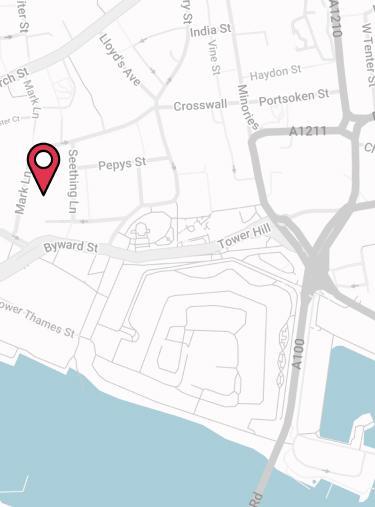The Dark Side of Presenteeism
What’s the Cause and What’s the Solution?

What Causes Presenteeism?
Employers witnessing presenteeism may be under the mistaken impression that coming into work more often is a good thing, that it’s indicative of heightened dedication and motivation. However, this is not always the case and the bad habit of presenteeism can be a warning sign of something else going wrong under the surface.
While in some instances working more than necessary may be down to increased job satisfaction, there are other, considerably less positive factors that have been known to contribute to workplace presenteeism:
- Unmanageable workloads and deadlines (30% of workers have workloads that they would describe as either ‘too much’ or ‘far too much’)[2]
- Personal financial difficulties (up to 20% of UK employees are estimated to experience in-work poverty)[3]
- Pressure from employers and managers (more than one in five workers always or often feel exhausted [22%] or ‘under excessive pressure’ [also 22%])[4]
- Job insecurity (4.4% of Great Britain’s population have worked in the so-called gig economy in the last 12 months, most likely without proper sick pay)[5]
Despite being present at their place of work, people that are working while ill, injured, or under stress tend to be significantly lacking in productivity.
VitalityHealth have estimated that the UK economy loses £77.5 billion per year as a combined result of poor health and presenteeism[6] – more than the entire GDP of Ecuador.
How Employers Can Tackle the Problem
When it comes to comes to dissuading presenteeism, there are some measures that have been found to be effective.
Pushing employees who aren’t feeling their best to commute and work as normal may aggravate their mental or physical condition. Instead, consider allowing them to work from home or utilise flexible work hours to give them the opportunity to work at their own pace and avoid overexerting themselves.
Above all, if an employee is too ill to work they should feel comfortable taking sick leave.

A Group Income Protection Insurance policy can lend a helping hand in preventing serious instances of presenteeism by providing a safety net so employees don’t feel like they have to drag themselves into work when seriously ill.
Nick Nelms
Senior Consultant, Employee Benefits Consultant
While Income Protection won’t have much effect if an employee tries to power through a cold, it can give employees some peace of mind if they develop a serious injury or illness.
Many UK workers have been known to struggle into work with broken bones or serious physical or mental illnesses because they cannot afford to take time off work, which can severely delay their rate of recovery and hinder productivity.
With benefits to rely on while they are recovering, employees aren’t forced back to work before they are ready. Many Income Protection providers are will also pay out reduced benefits if employees return to work on a temporary part-time basis while they aren’t fully recovered.
Small Changes Make A Big Difference
Some businesses when looking for a solution to presenteeism run with the misguided idea that the way to do this is to prevent employees from being ill in the first place. Regardless of the quality of your business’s health and wellbeing programmes, employees will always get sick or injured. It’s at this point you can make the most difference.
Even without making radical changes to your organisation, there are small changes that can be made to reduce presenteeism. For example, senior figures within an organisation can set an example for other employees by taking appropriate time off and not working during their holidays.
The following changes within your business can also help to curb presenteeism:
- Increased holiday and sick pay allowance mean that employees will feel more comfortable using their time off with the knowledge that it is unlikely that they will run out.
- Allowing employees to work from home can give employees a midway option between staying at home and going to work if they are not feeling their best. However, employers need to be careful when introducing this to their workplace and ensuring that employees aren’t taking their work home with them or working during their time off.
- Prioritising the quality of work rather than employees’ commitment is not an easy task to undertake, but a shift in attitude and heavier focus on how employees work rather than how long they work can relieve some of the pressure on employees. Many employees feel that the way to get ahead is to work longer and harder, which is something that should be deterred when it results in employees gluing themselves to their desks.
- Introducing flexible work hours can allow employees to take appropriate time away from work to reduce the risk of ‘burn out’, thus reducing the risk of mental health problems that have such a serious affect on productivity.
- Review employee workloads and pay attention to how long it takes for employees to complete their work. Excessive workload is one of the key causes of presenteeism, so employers and managers should do what they can to better manage employees’ workloads and offer realistic deadlines that don’t require them to be consistently present at work.
- Keep the conversation of mental health open to give employees more confidence to come forward and speak honestly about their problems. Many UK workers don’t allow themselves to take mental health days because they are too embarrassed to ask. Speaking about mental health in the workplace and offering support can change this and encourage employees to take a break when they aren’t feeling their best.
- Specialist support and strategies for people returning to work can avoid such scenarios as employees forcing themselves to return to work after an illness when they aren’t ready. It also helps to have a consultant or adviser come in to fight for employees’ right to take time off when they need it.

While there are many theories of how to reduce presenteeism in the workplace, the most effective methods tend to be the ones that are tailored to your employees. Employers need to remember that promoting mental health and reducing presenteeism is about more than just boosting productivity; it’s about taking care of your team and creating a positive environment that employees would want to return to. For that reason, the way to find the best solution to presenteeism is to involve your employees in the process.
Nadeem Farid
Employee Benefits Consultant at Drewberry
[1] https://www.cipd.co.uk/knowledge/culture/well-being/health-well-being-work
[2] https://www.cipd.co.uk/knowledge/work/trends/uk-working-lives
[3] https://www.bwcharity.org.uk/time-to-do-more
[4] https://www.cipd.co.uk/knowledge/work/trends/uk-working-lives
[5] https://assets.publishing.service.gov.uk/government/uploads/system/uploads/attachment_data/file/687553/The_characteristics_of_those_in_the_gig_economy.pdf
[6] https://www.vitality.co.uk/media/unhealthy-employees-costing-uk-firms-six-working-weeks-in-lost-productivity/
Contact Us
125-135 Preston Road
Brighton
BN1 6AF
Cookies
Drewberry™ uses cookies to offer you the best experience online. By continuing to use our website you agree to the use of cookies including for ad personalization.
If you would like to know more about cookies and how to manage them please view our privacy & cookie policy.









